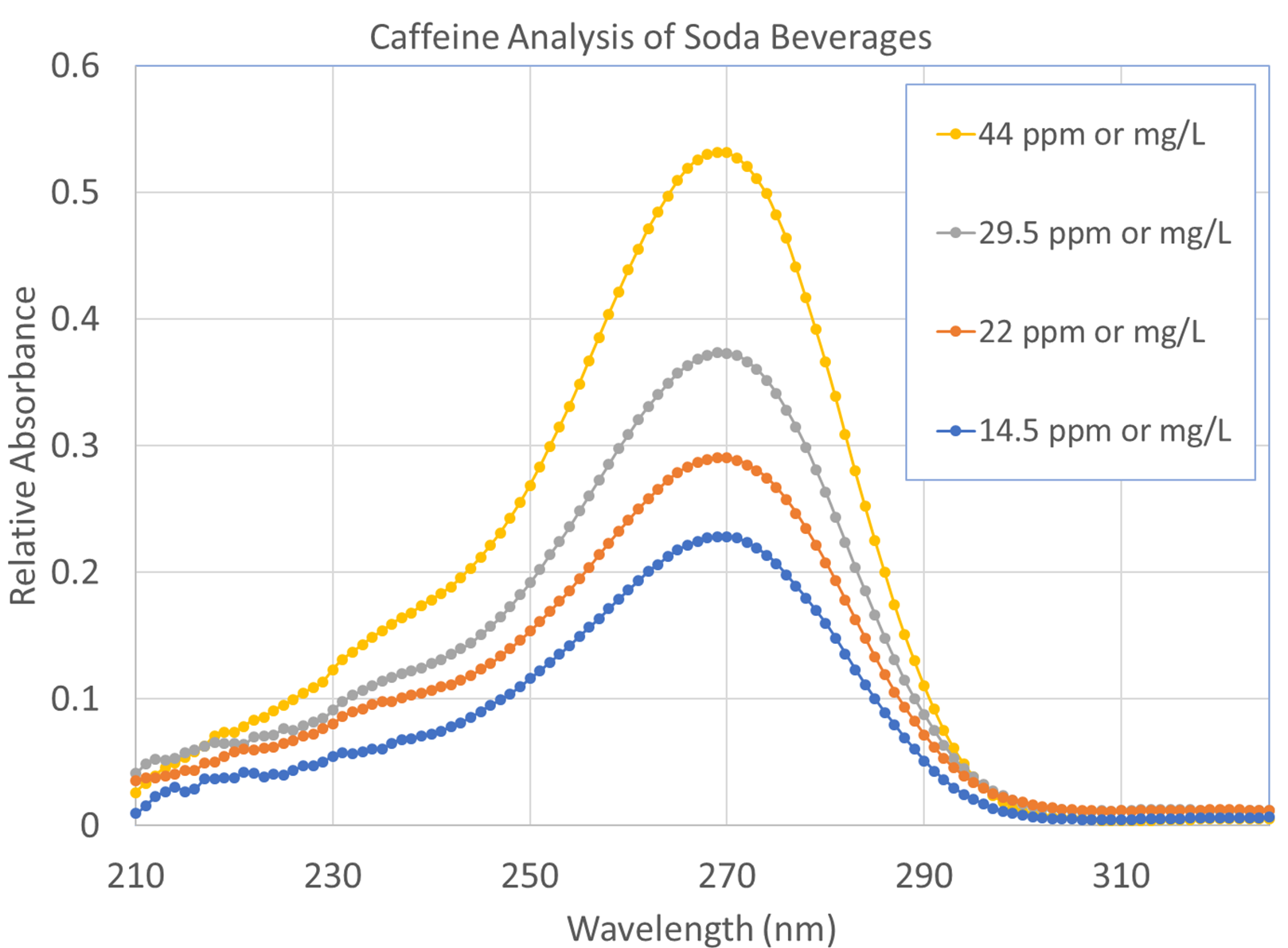UV/Vis Beverage Analysis of Caffeine
The Food and Drug Administration (FDA) requires beverage and coffee producers to maintain caffeine content below 25 parts per million for decaffeinated drinks in order to qualify for the “decaf” label. The IDS tool can provide instant caffeine measurement and beverage analysis of various components and food additives used during the decaffeination cycle in order to help minimize production time and maximize process efficiency. The tool is compact, portable, and requires very low maintenance and minimal training. With minor modification, the IDS can also be used as a non-destructive in-line beverage testing instrument. The ability to generate accurate and repeatable caffeine measurement in both regular and decaffeinated beverages is essential for quality control and for reducing the health risks to consumers. For example, the instrument can be used to also monitor the levels of methylene chloride residue that may still be present from its use as a solvent in the extraction of caffeine from green coffee beans. The IDS capability is not just limited to testing liquid beverages, it can also be modified and customized for the testing and analysis of solid food.
Spectroscopy can additionally be used as a tool for evaluating beverage color under artificial or natural light environments, which can affect the consumer perception of quality. UV/Vis and infrared analysis of beverages can also yield a wide range of information regarding the composition of beverages and any changes in their property, quality, and shelf-life as a result of long-term storage, transportation, temperature, and handling.

Analysis of caffeine content in soda beverages using the IDSpectra Instrument from PhosphorTech